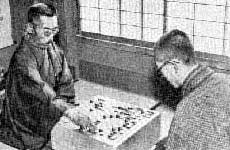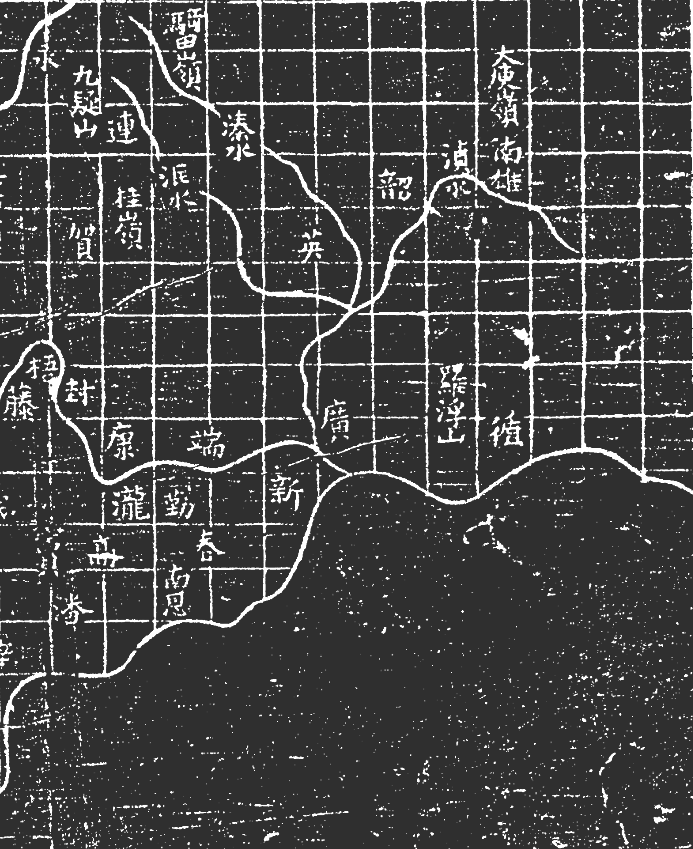|
Kang Yootaek
Kang Yootaek (born 26 November 1991) is a Korean 9 dan professional Go player. He was ranked #13 (as of April 2011) in the official rating system of the Korea Baduk Association (the Hanguk Kiwon). Biography Kang started to play Go at the age of 7. He is a member of the Yangchun Dail Baduk School. He became professional in 2007 by winning the Korean Insei A go apprentice is a student learning to play Go at an institution, typically with the aim of becoming a professional player. In Japan, such a student is called an ''insei'' (literally, "institution student"). Institutions for insei include ... league. He is ranked 9-dan. Titles and runners-up References External links Hanguk Kiwon official profileSensei's Library page {{DEFAULTSORT:Kang, Yoo-taek 1991 births Living people South Korean Go players ... [...More Info...] [...Related Items...] OR: [Wikipedia] [Google] [Baidu] |
South Korea
South Korea, officially the Republic of Korea (ROK), is a country in East Asia, constituting the southern part of the Korea, Korean Peninsula and sharing a Korean Demilitarized Zone, land border with North Korea. Its western border is formed by the Yellow Sea, while its eastern border is defined by the Sea of Japan. South Korea claims to be the sole legitimate government of the entire peninsula and List of islands of South Korea, adjacent islands. It has a Demographics of South Korea, population of 51.75 million, of which roughly half live in the Seoul Capital Area, the List of metropolitan areas by population, fourth most populous metropolitan area in the world. Other major cities include Incheon, Busan, and Daegu. The Korean Peninsula was inhabited as early as the Lower Paleolithic period. Its Gojoseon, first kingdom was noted in Chinese records in the early 7th century BCE. Following the unification of the Three Kingdoms of Korea into Unified Silla, Silla and Balhae in the ... [...More Info...] [...Related Items...] OR: [Wikipedia] [Google] [Baidu] |
Korea Baduk Association
The Korea Baduk Association, also known as Hanguk Kiwon (), was founded in November 1945 by Cho Namchul. Baduk is a game which was present in Korea by the 5th century. It originated in China, but the West is more familiar with the Japanese name Go. This is because the Japanese were the first to introduce it to the West. Japan was introduced to the game in the 7th century AD. Initially, most Korean players followed the sunjang style of beginning by placing sixteen stones —eight white and eight black— on the board in a preset pattern. Cho Namchul knew that the international players began with an empty board like Japan since Japan was the first to introduce the game to the West. By forming the association, he set about convincing Koreans players to use the "modern" style. The Hanguk Kiwon is the Go organization that oversees Go professionals in South Korea. It issues official diplomas for strong players and organizes tournaments for professionals. See also * International ... [...More Info...] [...Related Items...] OR: [Wikipedia] [Google] [Baidu] |
Go Professional
A Go professional is a professional player of the game of Go. The minimum standard to acquire a professional diploma through one of the major Go organisations is very high. The competition is tremendous, and prize incentives for champion players are very large. For example, the Honinbo Tournament has a grand prize of about $350,000. Almost all professional players are from China, Japan, South Korea, and Taiwan. This is because until recently, only China ( China Qiyuan), Japan (Nihon Ki-in, Kansai Ki-in), South Korea (Korea Baduk Association (Hanguk Gi-Won)), and Taiwan (Taiwan Chi Yuan Culture Foundation) had professional Go organizations. In 2012, the AGA Professional System was established in the United States. In 2014, the EGF professional system was established in Europe. Professional rankings are separate from the amateur ratings (usually ''30-kyu'' through ''7-dan''). Professional rankings are ''1-dan'' through ''9-dan'' (sometimes written ''1p'' through ''9p''). In the p ... [...More Info...] [...Related Items...] OR: [Wikipedia] [Google] [Baidu] |
Go Players
This article gives an overview of well-known professional and amateur players of the board game Go throughout the ages. The page has been divided into sections based on the era in which the Go players played and the country in which they played. As this was not necessarily their country of birth, a flag of that country precedes every player's name. For a complete list of player articles, see :Go players. The important dates that this separation is based on are: * The establishment of the Four go houses at the start of the Tokugawa Shogunate. * The demise of the houses in the Meiji Period (end 19th century) followed by their replacement by the Nihon Kiin in 1924. * The start of international tournament Go in 1989 A Japanese census on Go players performed in 2002 estimates that over 24 million people worldwide play Go, most of whom live in Asia. Most of the players listed on this article are professionals, though some top level amateurs have been included. Players famous for ... [...More Info...] [...Related Items...] OR: [Wikipedia] [Google] [Baidu] |
Yangchun
Yangchun, alternately romanized as Yeungchun, is a county-level city in southwestern Guangdong, China, administered as a part of the prefecture-level city of Yangjiang. Yangchun has an area of and had approximately 1.05 million inhabitants in 2003. History Under the Qing, made up part of the commandery In the Middle Ages, a commandery (rarely commandry) was the smallest administrative division of the European landed properties of a military order. It was also the name of the house where the knights of the commandery lived.Anthony Luttrell and ... of Zhaoqing. Administrative divisions Yangchun is divided into the urban quarter Chuncheng () and fifteen towns (). The municipalities are: * 河塱镇 Helang Town * 松柏镇 Songbai Town * 石望镇 Shiwang Town * 春湾镇 Chunwan Town * 合水镇 Heshui Town * 陂面镇 Baimian Town * 圭岗镇 Kyu Kong Town * 永宁镇 Yongning Town * 马水镇 Mashui Town * 岗美镇 Gangmei Town * 河口镇 Hekou Town * 潭水镇 Tan ... [...More Info...] [...Related Items...] OR: [Wikipedia] [Google] [Baidu] |
Go (game)
Go is an abstract strategy board game for two players in which the aim is to surround more territory than the opponent. The game was invented in China more than 2,500 years ago and is believed to be the oldest board game continuously played to the present day. A 2016 survey by the International Go Federation's 75 member nations found that there are over 46 million people worldwide who know how to play Go and over 20 million current players, the majority of whom live in East Asia. The playing pieces are called stones. One player uses the white stones and the other, black. The players take turns placing the stones on the vacant intersections (''points'') of a board. Once placed on the board, stones may not be moved, but stones are removed from the board if the stone (or group of stones) is surrounded by opposing stones on all orthogonally adjacent points, in which case the stone or group is ''captured''. The game proceeds until neither player wishes to make another move. Wh ... [...More Info...] [...Related Items...] OR: [Wikipedia] [Google] [Baidu] |
Insei
A go apprentice is a student learning to play Go at an institution, typically with the aim of becoming a professional player. In Japan, such a student is called an ''insei'' (literally, "institution student"). Institutions for insei include the Nihon Ki-in (Japanese Go Association) and the Kansai Ki-in (Kansai Go Association). The equivalent of Go insei in Korea is "Yeon gu saeng" (), read "Ken kyū sei" in Japanese and "Yán jiū shēng" ({{zh, c=硏究生, also meaning "graduate student") in Chinese. Qualifications and study In Japan, once a year 3 or 4 apprentices who qualify in a yearly tournament become professional players. East Asian players are required to become a professional before the age of 18 while studying as insei, but foreigners have the chance up to the age of about 30. To become an insei, a person requires a professional to sponsor them, and an application to the Nihon Ki-in. There is no official way to contact a professional for sponsorship. While i ... [...More Info...] [...Related Items...] OR: [Wikipedia] [Google] [Baidu] |
Go Ranks And Ratings
There are various systems of Go ranks and ratings that measure the skill in the traditional board game Go. Traditionally, Go rankings have been measured using a system of dan and kyu ranks. Especially in amateur play, these ranks facilitate the handicapping system, with a difference of one rank roughly corresponding to one free move at the beginning of the game. This system is also commonly used in many East Asian martial arts, where it often corresponds with a belt color. With the ready availability of calculators and computers, rating systems have been introduced. In such systems, a rating is rigorously calculated on the basis of game results. Kyu and dan ranks Traditionally, the level of players has been defined using ''kyu'' and ''dan'' ranks. Kyu ranks are considered ''student'' ranks. Dan ranks are considered ''master'' ranks. Beginners who have just learned the rules of the game are usually around 30th kyu. As they progress, they advance numerically downwards through th ... [...More Info...] [...Related Items...] OR: [Wikipedia] [Google] [Baidu] |
Siptan
The Siptan (Korean: 십단전, Hanja: 十段戰) was a South Korean Go competition. Begun in 2005, it was held eight times and was discontinued after 2013. Outline The Siptan was sponsored by Wonik Corporation and the Hanguk Kiwon. The format was hayago Players of the game of Go often use jargon to describe situations on the board and surrounding the game. Such technical terms are likely to be encountered in books and articles about Go in English as well as other languages. Many of these terms ... (blitz) with 10 minutes total and 40 seconds for byo-yomi. The final is decided in a best-of-3 match. The winner's purse was 25,000,000 Won (~US$26,000). It was the Korean equivalent of the Japanese Judan title. Past winners and runners-up See also * Judan References External links Sensei's Librarygotoeveryone.k2ss.infoKorea Baduk Association(in Korean) {{Korean go titles Go competitions in South Korea ... [...More Info...] [...Related Items...] OR: [Wikipedia] [Google] [Baidu] |
1991 Births
File:1991 Events Collage.png, From left, clockwise: Boris Yeltsin, elected as Russia's first president, waves the new flag of Russia after the 1991 Soviet coup d'état attempt, orchestrated by Soviet hardliners; Mount Pinatubo erupts in the Philippines, making it the second-largest volcanic eruption of the 20th century; MTS Oceanos sinks off the coast of South Africa, but the crew notoriously abandons the vessel before the passengers are rescued; Dissolution of the Soviet Union: The Soviet flag is lowered from the Kremlin for the last time and replaced with the flag of the Russian Federation; The United States and soon-to-be dissolved Soviet Union sign the START I Treaty; A tropical cyclone strikes Bangladesh, killing nearly 140,000 people; Lauda Air Flight 004 crashes after one of its thrust reversers activates during the flight; A United States-led coalition initiates Operation Desert Storm to remove Iraq and Saddam Hussein from Kuwait, 300x300px, thumb rect 0 0 200 200 ... [...More Info...] [...Related Items...] OR: [Wikipedia] [Google] [Baidu] |
Living People
Related categories * :Year of birth missing (living people) / :Year of birth unknown * :Date of birth missing (living people) / :Date of birth unknown * :Place of birth missing (living people) / :Place of birth unknown * :Year of death missing / :Year of death unknown * :Date of death missing / :Date of death unknown * :Place of death missing / :Place of death unknown * :Missing middle or first names See also * :Dead people * :Template:L, which generates this category or death years, and birth year and sort keys. : {{DEFAULTSORT:Living people 21st-century people People by status ... [...More Info...] [...Related Items...] OR: [Wikipedia] [Google] [Baidu] |



